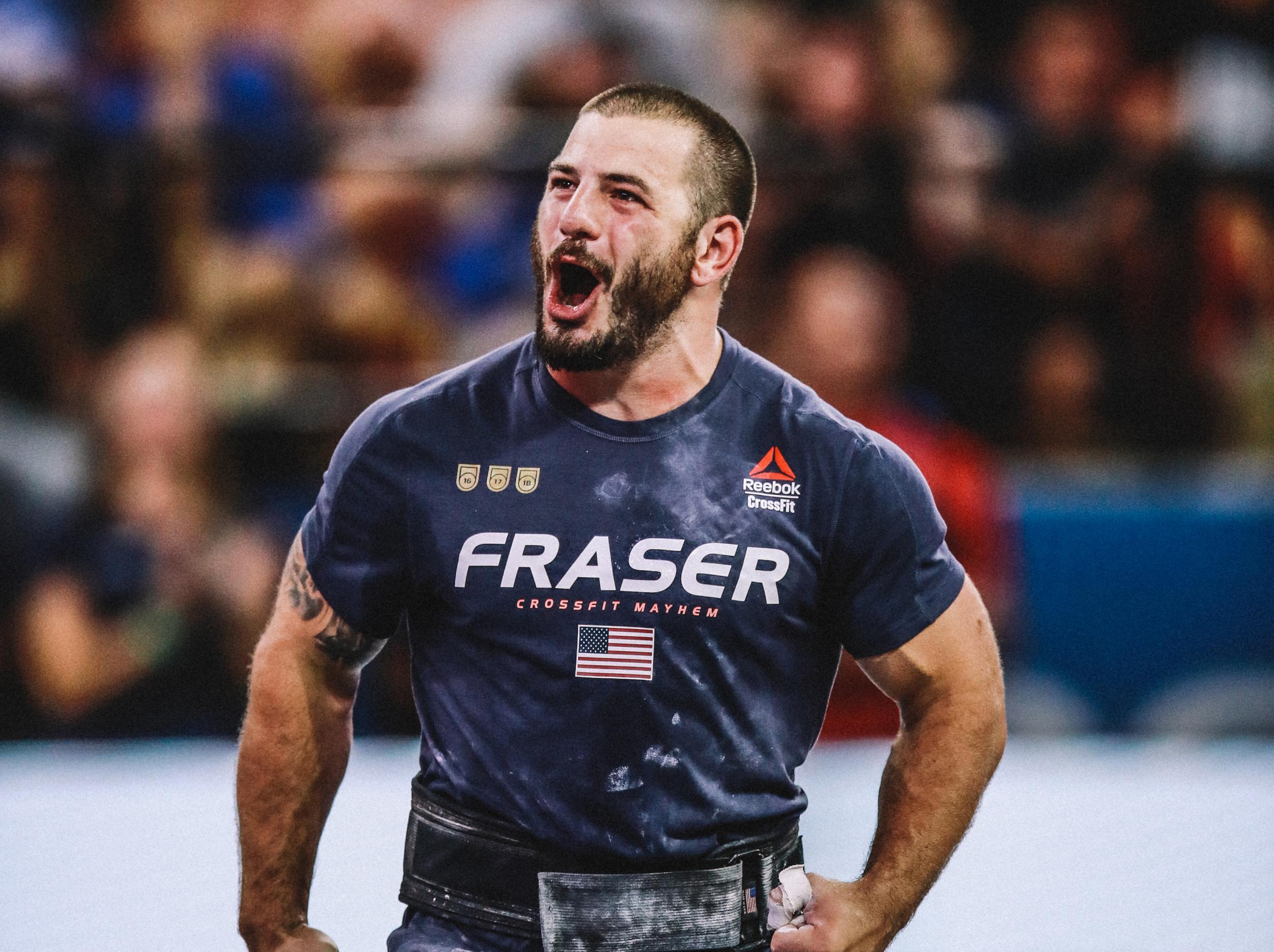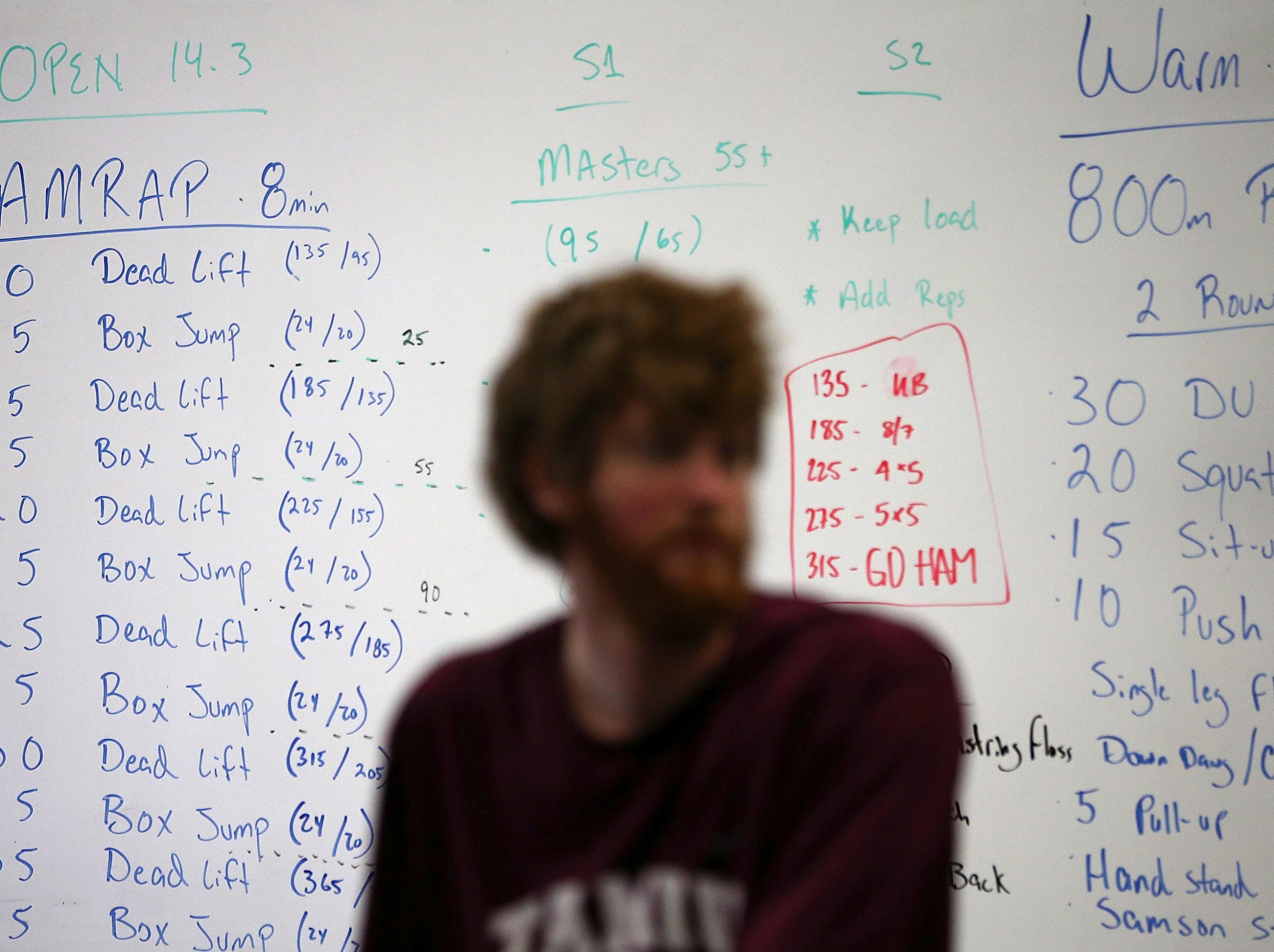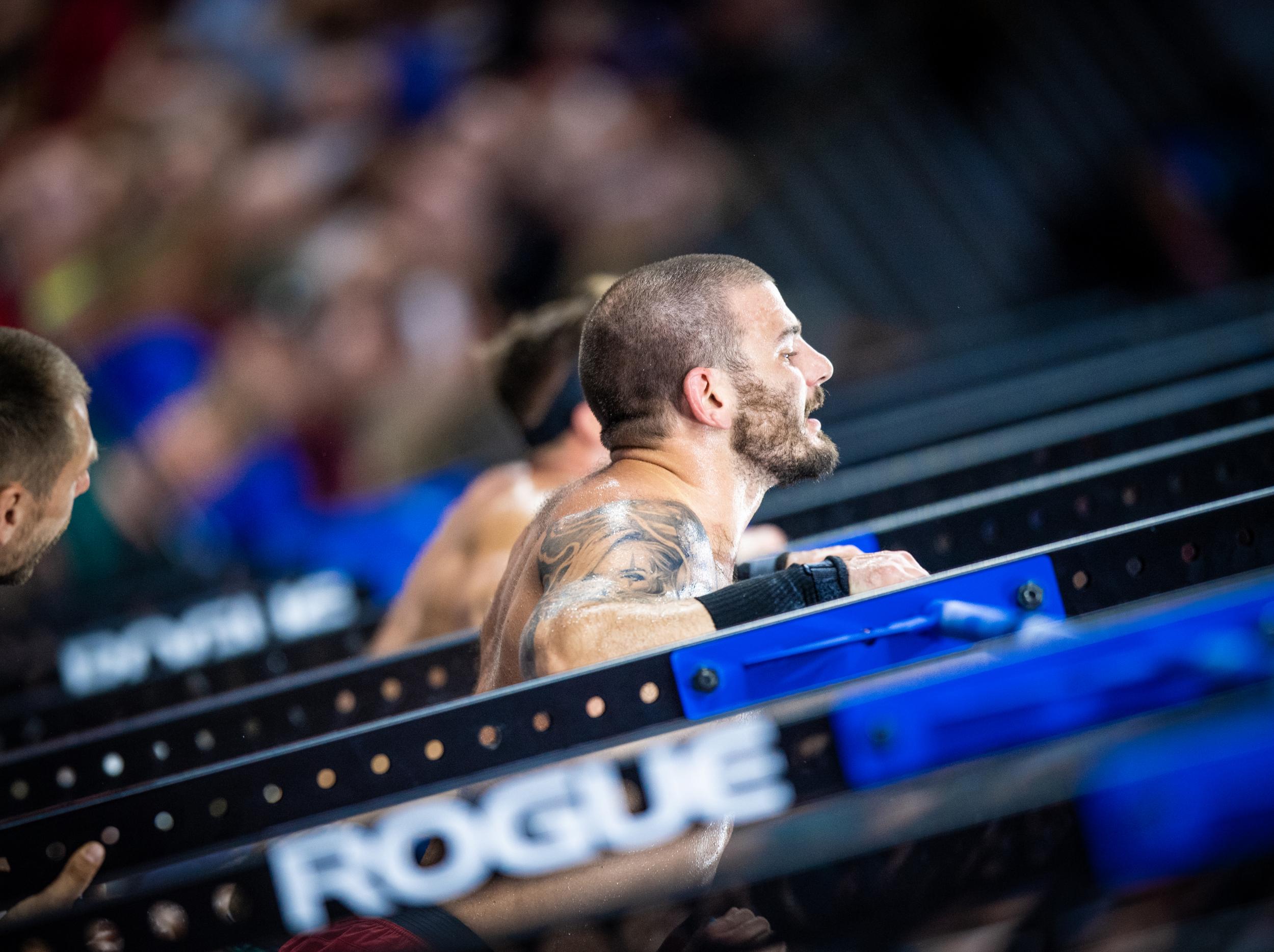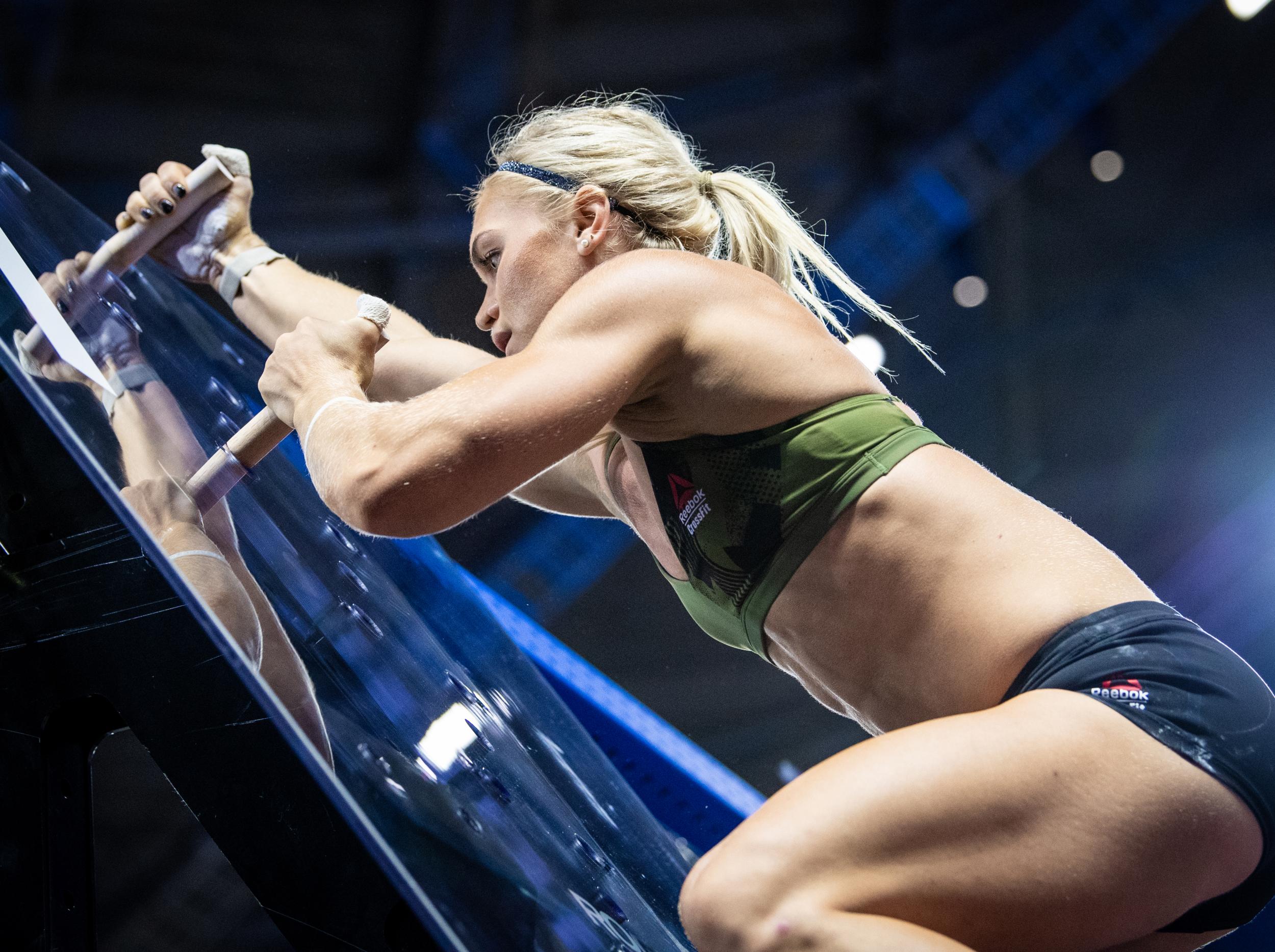Why not even coronavirus can halt the relentless rise of CrossFit
The uber competitive fitness regimen has adjusted quickly to the pandemic, but Vithushan Ehantharajah finds growing divisions at the summit of the movement


Mathew Fraser used to do this thing at airports. Whenever he walked past a stranger wearing a certain type of shoe, he would give them a nod.
The shoes were pretty indistinguishable: tightly fitted around the foot, thin under the balls but noticeably thicker and softer at the heel. To most people they were your standard trainer. But to Fraser and a handful of others, they were a telltale sign. This was a CrossFitter.
Never mind if it was a gym frequenter or Fraser, who in 2019 earned himself “the fittest on earth title” at the CrossFit Games for the fourth year in a row. The shoes and the nod said it all. “I know the club you are a part of and you know that I am a part of it too,” Fraser tells The Independent.
The reason he brings it up is because it does not happen as much anymore. CrossFit is now an ingrained part of modern society. Neither new or unknown. What started out as just another fitness fad, based on high-intensity interval training to strengthen and condition the body, has morphed into a movement.
Fraser is perhaps the embodiment of this, now needing to do more than just nod on a regular basis. Greater requests for selfies and autographs are met with the same enthusiasm. But his conversation has had to change.

“A common question I had to drop was ‘what gym do you go to?’ Then they’d tell me they didn’t actually do CrossFit and I’d be like, ‘Hold on – how do you know who I am??’”
The common answer would be “Netflix”. Fraser’s dominance at the CrossFit Games has positioned him as the focal point in four movies on the sport – the latest of which, The Fittest, was released at the end of March on a number of streaming platforms. Those films, while bumping up Fraser’s recognition – he has over 2million followers on Instagram – has given CrossFit more prominence among traditional sports. It is practised by an estimated four million people at over 13,000 affiliated gyms in 120 countries.
Yet while the coronavirus lockdown has clipped CrossFit’s wings at the height of its popularity, its traditional values of togetherness, adaptation and sacrifice – the same values that see it derided as “a cult” – are carrying it forward. These are values those outside this bubble are having to embrace.
The onus on staying fit, especially for those not previously active day-to-day, has seen many take their first steps in regular exercise with interactive group sessions, such as Joe Wicks’ YouTube show or other offerings on online platforms.
Attracting those types of people was a factor in CrossFit’s early success. Since its inception in 2000, it provided a community for those out of touch or out of love with conventional participation sports. Riding the wave of social media effectively also helped its worldwide appeal. That indomitable spirit is now being harnessed to aid the physical, mental and fiscal well-being in these uncertain times.
Gyms in the United States have kept their regular schedules, moving to online classes with the same trainers available at their regular times. Warm-ups and moves have been tailored to feature more body-weight exercises to allow people to maintain some form of routine in their lives.
In return, athletes have come together to support their affiliates, which take on the feel of a local town hall albeit one built on relentless grind and sweat. With the majority independently owned, each week moves them that little bit closer to going out of business as memberships are frozen or cancelled outright. As such, some of the biggest names came together to form the United In Movement scheme to raise relief funds for those affected by the pandemic such as the CrossFit Foundation, the Red Cross and Action Against Hunger through live workouts and other exclusive content. At the time of writing its 13,674 participants have raised $238,399.

It was the strength of the community which also led to "The Fittest" being released ahead of schedule. The film, which tells the story of the controversial 2019 CrossFit Games, was directed by Heber Cannon and Marston Sawyers, known collectively as The Buttery Bros. With the surge of interest in streaming platforms as coronavirus kept people indoors, they broached the subject of getting it out earlier than the scheduled 7 April date. Their distribution company agreed but only if they met a guaranteed number of pre-sales. A call out for help resulted in more than enough orders. On 24 March it dropped on iTunes.
“When you think about it, this is how CrossFit came to be seen as a ‘cult’,” Sawyers tells The Independent. "People would go to their gyms, feel good about themselves, tell their friends about it and make new friends. And, as the joke goes, CrossFitters only talked about one thing – CrossFit! It was all word of mouth. But as it generally got more accepted and more mainstream, that core group expanded and yet also got tighter.”
Cannon goes further regarding CrossFit’s impact, especially during the pandemic: “The pull was people realising how important it is to stay moving and fit. Now you look at it, you need your immune system to be built up so you can better fight against the virus.”

Yet the biggest takeaway from The Fittest is not the feeling of community at all, even if a key aspect was athletes sticking together amid one of the more brutal Games, with almost half the field cut after the first event. Nor its popularity which slaps you in the face with regular, almost gratuitous shots of packed grandstands. What comes across loud and clear is those who wish excel must specialise in self-sufficiency and isolation.
As the base widens, those at the top are pushing to distance themselves further. That’s as true for Fraser as it is for three-time fittest woman on earth, Tia-Clair Toomey.
“I guess that is one way of looking at it,” considers Toomey. “The competitive side needs you to dedicate your lives to training for the Games and these events around the world. You need to be different to get ahead.”
Even the way Fraser computes the pandemic and its holding up of the sport has a ruthlessness behind it. “Being upset about a situation one way or another does no good. I’d rather take it as it comes”. Coronavirus is just another barbell to be raised and raised again, more often and quicker than anyone else.
There is a realisation for those who choose CrossFit for their living that the top tier shows you little community
He and Toomey are training partners, with the latter’s husband, Shane Orr, acting as their coach. Tennessee, the state they call home – Toomey is originally from Australia – has not gone into lockdown just yet. But if or when it does, Toomey and Orr will pack their bags and move in with Fraser.
“The home office” as Fraser calls it is lauded as one of the most well-equipped home gyms in CrossFit. Though not flush with space, it evidently contains enough for a champion's needs. It also features a floor-to-ceiling safe of Fraser’s fire-arms. The fittest CrossFitter might also be the most well-armed.
“I’ve set-up my life to basically revolve around the most ideal training situations at all times,” says Fraser. “If stuff goes into lockdown for however long, I’m not going to skip a beat. We have our normal training partner, our normal coach, our normal schedule.”

It’s telling that despite laying claim to being the fittest, the characteristic Fraser boasts about is indifference. The cancellation of events across the world has thrown the schedules of thousands of competitors out of sync. At no point does the four-time champion suggest even a whiff of anxiety.
The 2020 Games has been suspended indefinitely, but that’s no concern of his, even if five-in-five would set new heights for human endeavour. That the Rogue Invitational, due to take place in Ohio across 13 and 14 June, is now set to take place online has him just as breezy, even if the logistics are complicated.
The general idea is competitors will perform hour-long exercises live on video with Rogue looking at looking at developing a “standard” regarding equipment, such as the make and generation of bikes used. Those participating from abroad will also have time differences to negotiate with all events having to take place at the same time Eastern Daylight Time. Some, like Toomey, are desperate for the milestone of a competition. Fraser, though, is zen. “People are speculating. But I just shrug my shoulders.”
He has not always been this way. His early years, even before as an Olympic weightlifter at the University of Vermont, show a character unrecognisable to this one so at ease. He admits to previously being “upset” and “wasting mental energy” on matters beyond his control. That first win in 2016 came off the back of two runners-up placings that led him to breaking down what he could and could not control. That now means not expecting either help or favours from anyone or anything.
“It’s a coincidence that this film is about the unknown,” states Sawyers regarding its correlation with present day. “Athletes were unsure how 2019 would play out. At the top level, that’s how it’s been for a while though. The 2010 games were completely different to the ones in 2014. And 2018 was unrecognisable to either of those. Those four years have had the biggest shifts. Until 2019.”
There is a realisation for those who choose CrossFit for their living that the top tier shows you little community. As a young organisation, it does not have tradition to bind it to some form of understood normality. Some spin that as a positive: an entity ever-evolving and relentless, just like its competitors. But from the outside looking in it can seem a sport that shows little love to the majority of those who dedicate their lives to it.
It's toll and the merits of a cycle of exercises completed to failure have long been debated among the fitness world. And it remains on this plane the company in particular, CrossFit Inc, still have many to sway. Like Fraser, though, there is indifference.
“To be frank, I don’t think they care,” says Heber. Talk of becoming an Olympic Sport or setting up a fitness league have been a constant over the last five years. The introduction of “national champions” in 2019 put a more official stamp on its international recognition and the suggestion is this will lead to natural globalisation of CrossFit's competitive network without needing to rely on pre-existing archaic and political organisations like the IOC.
“They like stirring the pot," says Heber of CrossFit Inc. "And they are very happy with where they are. They don’t really need – or want to need – anyone else.”
By now, it is clear the doubters are further entrenched, and it is clear CrossFit's brazenness in the fitness world has created some unnecessary enemies. But amid the challenges of coronavirus they are taking pride that its founding pillars of community and physical betterment are being shared further and wider. Even as the world stands still, CrossFit continues to stride forward among all people in all shoes.
Join our commenting forum
Join thought-provoking conversations, follow other Independent readers and see their replies
Comments
Bookmark popover
Removed from bookmarks